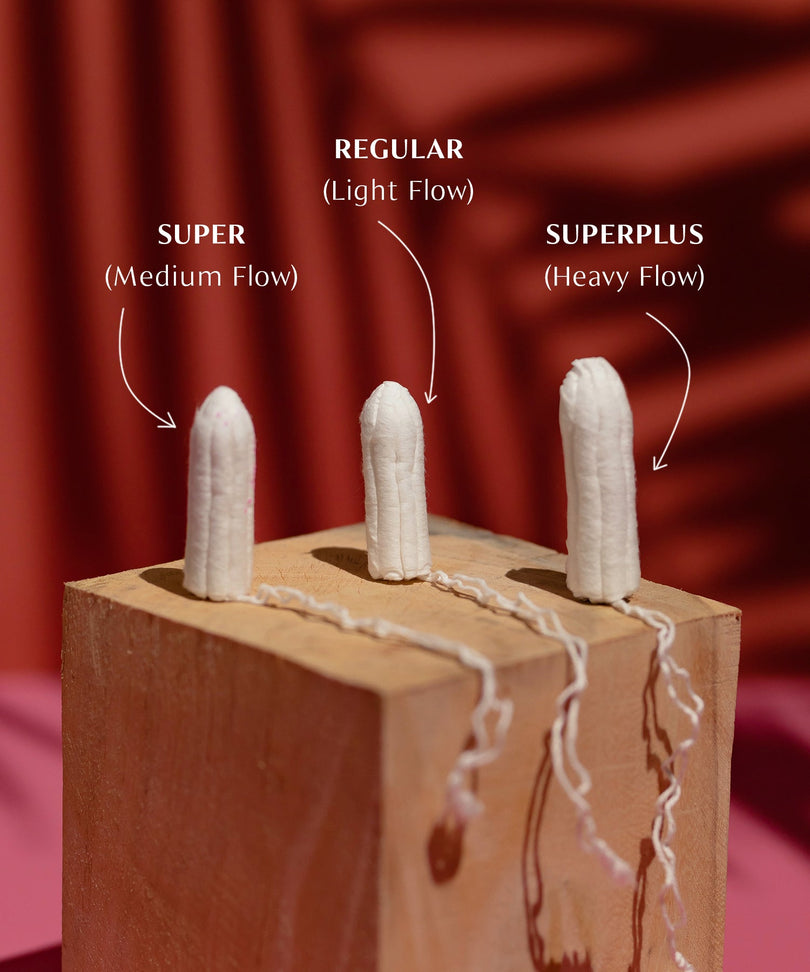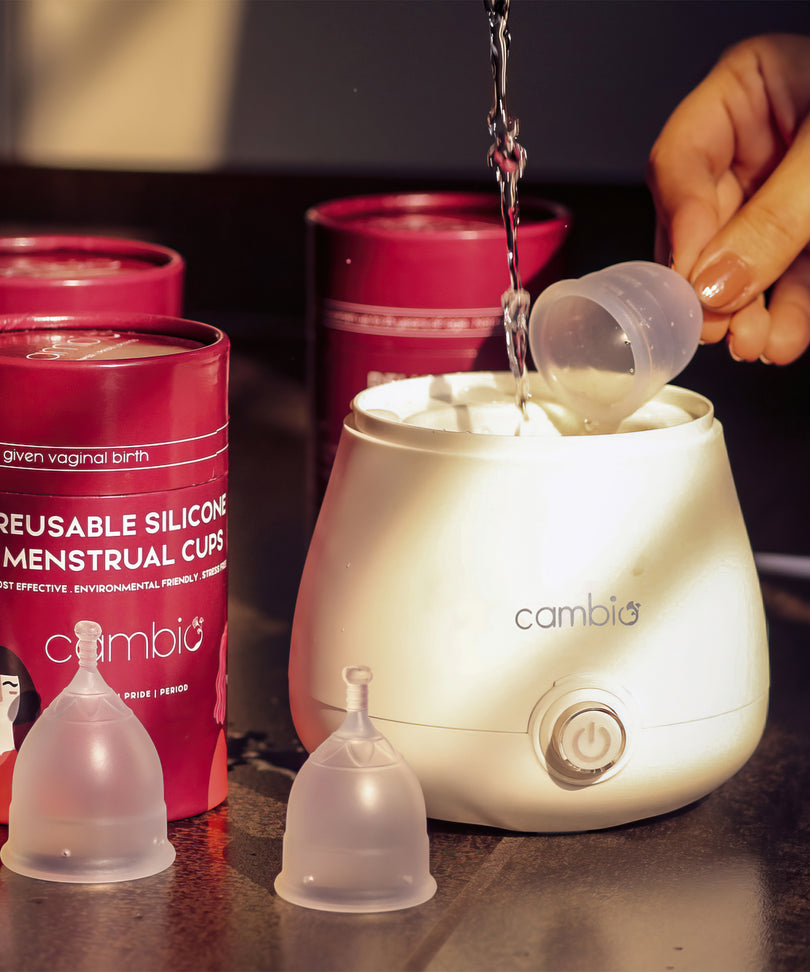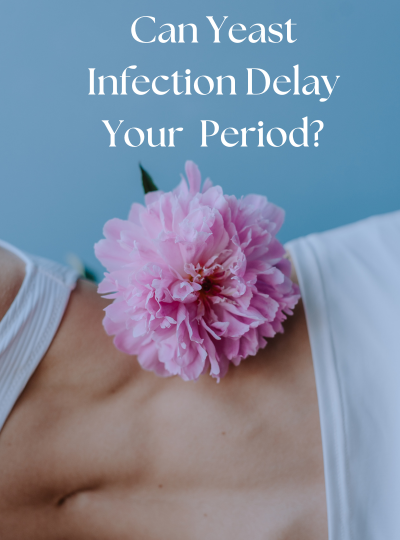Can having sex delay your period?
No, engaging in sexual activity can not have effects on your periods. But it can lead to indirect issues. Let's explore both positive and negative key points.
Positive aspects of having sex before the period cycle
- Hormonal Changes: Sexual activity triggers the release of oxytocin, a hormone that promotes feelings of intimacy and relaxation. This hormone can also help regulate the menstrual cycle by reducing stress levels, which in turn can positively impact the regularity of periods.
- Menstrual Pain Relief: Sexual activity can provide natural pain relief during menstruation. Orgasms release endorphins, which act as natural painkillers, helping to alleviate cramps and discomfort.
- Blood Flow: Engaging in sexual activity increases blood flow to the pelvic region. This increased blood circulation can potentially lead to a shorter duration of periods.
- Emotional Well-being: Sexual activity can enhance emotional well-being by boosting mood and reducing anxiety. This positive impact on mental health can indirectly contribute to a healthier menstrual cycle.
Also read - Can sex make your period come early?
Negative aspects of having sex before period cycle
- Stress:
- Psychological Impact: Engaging in sexual activity for the first time or experiencing emotional stress within a relationship can trigger the release of stress hormones like cortisol. Elevated cortisol levels may disrupt the delicate balance of reproductive hormones, potentially affecting the regularity of the menstrual cycle.
- Hypothalamus-Pituitary-Adrenal (HPA) Axis: Stress can impact the HPA axis, a complex network involving the hypothalamus, pituitary gland, and adrenal glands. This axis plays a crucial role in regulating various bodily functions, including the menstrual cycle. Chronic stress may interfere with this system and lead to irregular periods.
- Hormonal Changes:
- Pregnancy: The most significant hormonal change resulting from sexual activity is pregnancy. If fertilization occurs, it triggers a cascade of hormonal changes, particularly the rise in human chorionic gonadotropin (hCG). This hormone signals the corpus luteum to continue producing progesterone, preventing the shedding of the uterine lining and thus the occurrence of menstruation. This absence of a menstrual period is a classic early sign of pregnancy.
Also read - Is watery period blood a sign of pregnancy?
- Birth Control:
- Hormonal Contraceptives: Women using hormonal contraceptives, such as birth control pills, may experience changes in their menstrual cycle. These contraceptives often contain synthetic hormones (estrogen and progestin) that regulate the menstrual cycle. Missing pills, altering the timing of consumption, or switching to a different contraceptive method can disrupt this hormonal balance, potentially leading to irregular periods.
- Emergency Contraception: In cases where emergency contraception is used after unprotected sex, it introduces a high dose of hormones to prevent pregnancy. This can lead to temporary hormonal imbalances, affecting the timing and regularity of the menstrual cycle.
Remember, everyone's body is unique, and these effects may vary from person to person. It's always important to listen to your body and consult with healthcare professionals for personalized advice.
Also read - How to get periods immediately to avoid pregnancy?
Can having sex before your period delay it?
Regular sexual activity is not known to influence the regularity or timing of the menstrual cycle. Hormonal changes associated with the menstrual cycle are primarily regulated by the reproductive system.
Can having sex for the first time delay your period?
Engaging in sexual activity for the first time, in and of itself, is not causally linked to delaying the menstrual cycle. The initiation of sexual activity does not alter the hormonal processes governing menstrual cycles.
Can having sex 2 days before your period delay it?
Having sex a couple of days before the expected period is also unlikely to cause a delay in menstruation. In a typical menstrual cycle, the hormonal changes leading to menstruation have already been set in motion by this point.
Can having a protected sex right before your period delay it?
Engaging in protected sex, particularly with methods like condoms, is not expected to influence the timing or regularity of the menstrual cycle. Condoms primarily act as a barrier method to prevent pregnancy by stopping the sperm from reaching the egg. They do not have a direct impact on the hormonal processes that govern menstruation.
It's important to note that while protected sex itself is unlikely to affect the menstrual cycle, hormonal contraceptives present a different scenario. Hormonal contraceptives, such as birth control pills or injections, do contain synthetic hormones (estrogen and/or progestin) that can influence the menstrual cycle.
If an individual is using hormonal contraceptives, it's not uncommon to experience changes in menstrual patterns, such as lighter periods, reduced cramps, or even skipped periods. These changes are expected and are part of how hormonal contraceptives work to prevent pregnancy.
Also read - Can a UTI delay your period?
What are some Misconceptions and Myths about Sex and Periods?
Myth #1: Having sex can delay your period
Contrary to popular belief, engaging in sexual activity does not delay your period. The menstrual cycle is regulated by hormonal fluctuations, and having sex does not affect these hormonal levels. So, if you're worried about your period being late after being sexually active, rest assured that it's not the cause.
Myth #2: The morning-after pill can delay your period
While the morning-after pill can alter your menstrual cycle temporarily, it doesn't necessarily delay your period. It works by preventing ovulation or fertilization, which can affect the timing of your period. However, it's important to remember that the morning-after pill is not a regular form of contraception and should only be used in emergencies.
Myth #3: Stress can delay your period
Stress can indeed have an impact on your menstrual cycle, but it doesn't always result in a delayed period. For some individuals, stress can cause their periods to be irregular or even early. Each person's body reacts differently to stress, so it's crucial to manage stress levels through self-care practices like exercise, meditation, or seeking support when needed.
Remember, it's essential to separate facts from fiction when it comes to our bodies and reproductive health. By debunking these myths, we can empower ourselves and make informed decisions. If you have any concerns about your menstrual cycle, it's always best to consult with a healthcare professional who can provide personalized advice.
Also read - Can stress delay your period?
Influential Factors on Menstrual Regularity: Stress, Illness, and Lifestyle Changes
The regularity of the menstrual cycle involves a delicate balance of hormones. There are other factors to consider that can also affect menstrual patterns. Understanding these influences is crucial for a more complete picture of reproductive health.
- Stress and Its Influence:
High-stress levels can throw off the menstrual cycle by affecting the balance of reproductive hormones, like estrogen and progesterone. Stress-related hormonal changes may lead to irregular periods. It's important to note that these changes are due to stress, not necessarily tied to sexual activity.
- The Impact of Illness:
Various illnesses, from short-term infections to long-term health issues, can influence hormonal balance and disrupt the usual menstrual cycle. Conditions like fever and systemic disturbances can cause irregular periods. Recognizing illness as an independent factor in menstrual changes is crucial.
- Lifestyle Adjustments:
Lifestyle changes, whether intentional or unplanned, can introduce variations in the menstrual cycle. Shifts in sleep patterns during periods, eating habits, or increased physical activity can independently affect hormonal regulation, leading to changes in menstrual regularity. It's important to understand that these lifestyle changes may not necessarily be connected to sexual activity.
Also read - Can I use boric acid during periods?
Influence of Hormonal Birth Control on Menstrual Patterns
Contraceptive methods, particularly hormonal birth control, play a significant role in shaping menstrual patterns. Understanding how these methods affect menstruation is crucial for individuals considering or using such contraceptives.
- Suppression of Ovulation:
Hormonal contraceptives, like birth control pills, patches, and certain injections, often contain synthetic hormones – estrogen and progestin. These hormones work together to suppress ovulation, preventing the release of an egg from the ovaries. As a result, the typical hormonal fluctuations associated with the menstrual cycle are altered.
- Changes in Menstrual Flow:
Hormonal birth control can influence the menstrual flow. Some individuals may experience lighter periods, while others may notice reduced menstrual cramps. This is due to the impact of hormonal contraceptives on the endometrial lining, making it thinner and less prone to heavy shedding during menstruation.
- Irregular Bleeding or Spotting:
It's common for individuals using hormonal birth control to experience irregular bleeding or spotting between periods, especially during the initial months of use. This is often a temporary adjustment as the body adapts to the hormonal changes induced by the contraceptive.
- Shortened or Skipped Periods:
Hormonal contraceptives can lead to shortened or even skipped menstrual periods. This occurs because the synthetic hormones in the contraceptives create a more stable hormonal environment, affecting the usual triggers for menstruation.
- Regulation of Menstrual Cycles:
While hormonal birth control can introduce changes, it also offers the advantage of regulating menstrual cycles. Some individuals use these contraceptives to manage conditions like irregular periods, heavy menstrual bleeding, or menstrual pain.
Important Considerations:
It's essential for individuals using hormonal birth control to be aware of potential changes in their menstrual patterns. Any significant deviation from the expected patterns should be discussed with a healthcare provider. Additionally, the choice of contraceptive method should align with an individual's health needs, lifestyle, and preferences.
More to read
Clitoral Erection - Can Girls Get Boners?
Can you get a Pap Smear on Period?









